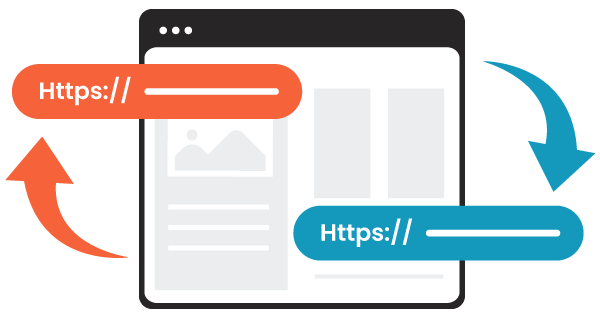Over the years, it’s become more apparent to behavioral health specialists there’s an undeniable connection between mental health and substance use disorders. When diagnosed with both, it can be difficult for clients and their care team alike to identify a path forward. But fortunately, a dual-diagnosis of a mental health condition and substance use disorder does have treatment options. With compassionate, holistic care coordination, case managers can help clients find recovery and healing.
Why Are Mental Health Disorders and Substance Use Disorders So Deeply Entwined?
According to the Substance Abuse and Mental Health Services Administration (SAMHSA), about 9.5 million adults in the United States had both a mental health condition and a substance use disorder in 2019. This accounts for 3.6% of the adult population.
But why do these conditions co-occur? Emotional, physical, and social factors all play a role.
1. Substances are frequently used to cope with the symptoms of mental health disorders. For example, someone with depression may turn to alcohol or drugs to numb their feelings of sadness or hopelessness. Similarly, individuals with anxiety disorders may use substances as a way to self-medicate and temporarily alleviate their feelings of anxiety or panic. But over time, prolonged substance abuse actually worsens existing mental health symptoms, making it more difficult for individuals to manage their conditions effectively.
2. The biological side effects of substance use can trigger mental health symptoms. On the other hand, substance use disorders can also contribute to the development or exacerbation of mental health disorders. Prolonged substance abuse can disrupt brain chemistry and lead to imbalances in neurotransmitters, which can contribute to the development of mental health disorders such as depression, anxiety, or psychosis.
3. Societal pressures may prevent individuals from seeking help. Furthermore, the stigma and social isolation associated with mental health disorders can contribute to substance abuse as individuals may turn to substances as a way to cope with the negative emotions and feelings of loneliness. Substance abuse can provide a temporary escape or relief, leading to a cycle of dependence and further deterioration of mental health.
Because mental health disorders and substance use disorders can be deeply interconnected, it is crucial to address the mental health and substance use aspects of an individual’s condition collaboratively to promote long-term recovery and well-being. Integrated treatment programs that address both mental health and substance use disorders simultaneously have been found to be more effective in achieving positive outcomes and reducing the risk of relapse.

How to Treat Co-Occurring Mental Health Issues and Substance Use Disorders
Receiving a diagnosis for a mental illness or a substance use disorder can be overwhelming, and the effects are only magnified when a client is diagnosed with both. Though society is shifting to be more accepting and understanding of mental health challenges, individuals may still feel impacted by the stigma affiliated with seeking help. Depending on the specifics of a client’s dual diagnosis, multiple providers may need to work together to formulate a comprehensive, effective care plan.
1. Integrated Assessment and Diagnosis
The first step in treating co-occurring mental health issues and substance use disorders is conducting a thorough assessment. This includes evaluating the individual’s mental health symptoms, substance use patterns, and any underlying causes or triggers. An integrated assessment ensures that all aspects of the person’s health and lifestyle are considered to develop an effective treatment plan.
2. Coordinated Treatment Planning
Once a thorough assessment is done, a coordinated treatment plan can be developed. This plan should address both mental health issues and substance use disorders simultaneously. Integrated treatment involves the collaboration of mental health professionals, substance abuse counselors, and other healthcare providers to provide holistic care.
3. Evidence-Based Treatment Modalities
Evidence-based treatment modalities are essential for addressing both mental health issues and substance use disorders. Cognitive Behavioral Therapy (CBT) is commonly used in treating co-occurring disorders, helping individuals identify and modify negative patterns of thinking and behavior. Motivational Interviewing (MI) is another effective approach that enhances motivation for change. Medication-assisted treatment may also be necessary for managing withdrawal symptoms and cravings and underlying mental health disorders.
4. Dual Diagnosis Treatment Programs
Dual diagnosis treatment programs specialize in addressing co-occurring mental health issues and substance use disorders. These programs offer a specifically tailored and integrated approach that addresses the unique challenges individuals face when dealing with both conditions. These programs often incorporate individual therapy, group therapy, psychoeducation, relapse prevention strategies, and support from peers.
5. Supportive Wraparound Care
Wraparound care refers to a comprehensive and coordinated approach to providing support and services to individuals with behavioral health issues. Co-occurring disorders often impact various aspects of an individual’s life that can’t be addressed with just clinical treatments. Supportive services that meet social, vocational, and housing needs can drastically improve outcomes for clients.
6. Relapse Prevention and Aftercare
Relapse prevention is a vital component of treating co-occurring disorders. Developing effective coping strategies and addressing triggers can help individuals maintain their recovery. Aftercare programs, such as outpatient therapy, support groups, and ongoing monitoring, are essential in providing ongoing support and preventing relapse.
7. Support System Involvement and Education
Involving loved ones in the treatment process can provide additional support for individuals with co-occurring disorders. A strong support network can make a huge difference in the efficacy of treatments.
Treating co-occurring mental health issues and substance use disorders is a complex task that requires a multidimensional approach — but recovery is possible. By addressing both conditions simultaneously and providing comprehensive care, individuals have a better chance of achieving lasting recovery and improved mental well-being.
Hands-On Case Management Can Help Support Balance and Healing
Clients with a dual diagnosis often require a comprehensive and integrated approach to treatment — and case management plays a central role in making those treatments a success. Case managers act as a liaison between a network of providers, advocating for their clients’ needs and facilitating care. They work closely with mental health professionals, substance abuse counselors, and other relevant providers to develop individualized treatment plans that address both the mental health and substance use needs of the clients. This one-on-one coordination helps to minimize fragmentation of care, reduce duplicative services, and ensure that treatment interventions are aligned with the client’s overall goals.
In addition to coordinating services, case managers also serve as advocates for their clients. They actively communicate the clients’ needs and preferences to the treatment team and help navigate the often complex healthcare system. From scheduling appointments with mental health and substance abuse specialists to connecting clients with appropriate community resources, case managers play a crucial role in ensuring that clients receive comprehensive care and access to the right support systems. This integrated approach provides a more holistic and effective treatment experience, and increases the likelihood of positive outcomes and long-term recovery.
Put Compassionate Care Coordination at the Forefront with CaseWorthy
CaseWorthy is a leading case management software that makes it easier for case managers to do their jobs and improve the lives of their clients. We designed our solution to be highly adaptable and customizable because no two organizations are the same. But right out of the box, CaseWorthy has all the features you need to:
- Streamline the process of managing cases
- Connect clients with life-changing resources
- Collaborate among internal and external party members
- Make referrals to specialized organizations
- Set goals for clients and track their progress
- Take thorough case notes for seamless knowledge transfer
- And more.
Complex cases, like ones that involve dual diagnoses, deserve hands-on, comprehensive care. Our software allows you to spend less time with technology and more time with people — let us show you how.


